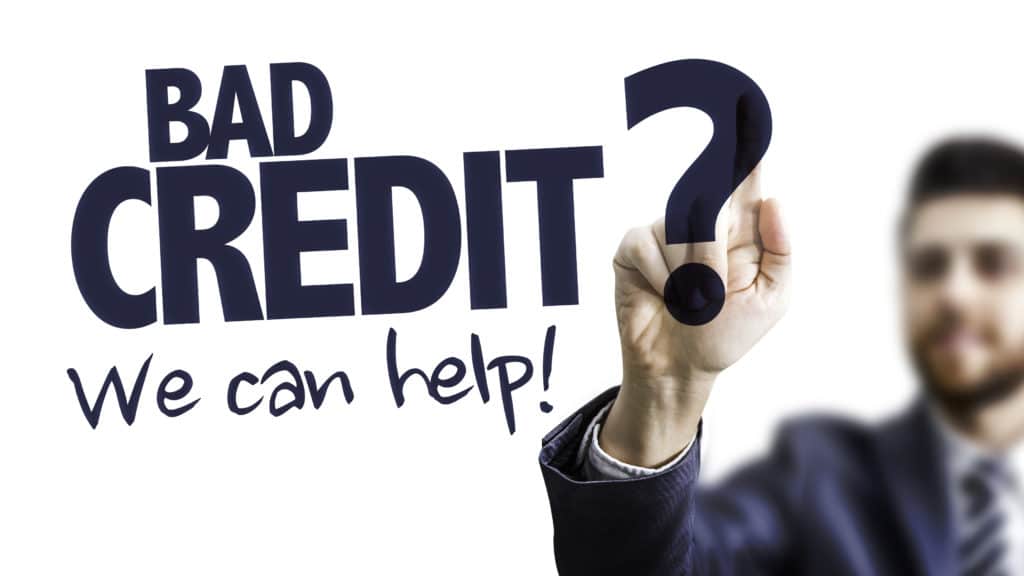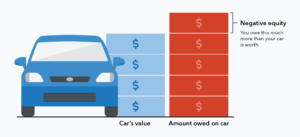Do you have bad credit? Do you know what is considered bad credit in Canada? Do you even know your own score?
The average credit score in Canada is about 650 although the numbers vary a bit from province to province. If your score is on the lower end, it can be comforting to know you’re not alone.
However, just because you’re not alone doesn’t mean you’ll have an easy time buying a car. Check out how to apply for bad credit car loans or what damaged credit options you may have here.
What Is Considered a Bad Credit Score?
In Canada, credit scores are rated on a scale of 300-900. The 660-724 range is considered good, 725-759 is called very good, and the top scorers from 760 to 900 have excellent credit. To have the best chances of being approved and to qualify for lower rates, a score of 700 or higher is ideal.
On the other side of the scale, 560-659 is called fair and 300-599 is poor. Though it’s better to have a fair score than a poor one, both of these ranges are considered bad credit. If your score is lower than 660, you may run into trouble getting approved for a loan.
Strengthen Your Profile When Buying a Car with Bad Credit
Thankfully, for those whose scores aren’t quite in the good range, the credit score isn’t the only thing a lender considers when determining eligibility. A few factors weigh in and having a strong overall profile can significantly help your chances of being approved.
Let’s take a look at what counts.
Down Payment
The loan amount isn’t the only pertinent dollar amount that lenders will review. You should always bring something to the table when asking for a loan. This is your down payment. Even if you can only scrape together 10% of the value of the car, something is better than nothing.
How much of a down payment should you save? While 10% is probably the lowest you should go, saving up 20% will strengthen your profile considerably. From the lender’s point of view, you’ve shown that you can save a significant amount of money, as well as they have to hand over less.
Having a larger down payment helps you too, your monthly payments will be lower and you’ll pay less interest over the life of the loan. Check out this handy loan calculator to find what fits your situation best.
Employment History/Income Information
The lender will also look at your employment history and verify your income. They typically do this by requesting your pay stubs. If you don’t have pay stubs, written proof of employment, such as a statement from your employer, is usually enough although some banks may call for verbal confirmation from your employer.
More recently, lenders have also begun texting or emailing clients a verification “link” that allows lenders to verify regular payroll deposits are going into your account. Secure encryption assures your private information is always safe. This step assures them that you have the means to pay back the loan.
Banking/Financial Information
This one can feel a little invasive, but lenders have a right to ask. Lenders can ask for several months of bank statements for your chequing and savings accounts. Plus, they’ll want to know about any assets you own and other debts you have.
Practical Purchase
If you show up with a bad credit score and a $10,000 down payment and want to buy a $150,000 Lamborghini, the loan officer will probably laugh in your face. Nobody’s going to trust you with that kind of money. Not to mention, buying an expensive car on credit with a low score isn’t in your best interest. You’ll be getting a higher interest rate, meaning you’ll end up paying thousands in interest alone.
It’s best to stick with a practical purchase. Lenders will look much more favourably upon a sensible, second-hand commuter car. If you really have to have a nicer car, consider buying the sensible car now. Once you’ve paid it off you can sell it and use the money for a bigger down payment on the car of your dreams. Who knows? By then, you may have even built up your credit score to qualify for a lower rate!
Consider a Cosigner
Another option when looking for low credit vehicle financing is to use a cosigner to strengthen your application. This can be any friend or family member with a good or excellent score who is willing to cosign.
By signing for the loan with you, they are saying they will take responsibility for the loan if you fail to pay and their high score will bump up your low one. This helps you both to qualify for the loan as well as a lower interest rate. As you make on-time payments this also can help to boost both your and your cosigner’s credit score. Win-win for everyone!
Work With A Broker
Buying a car with bad credit can be disheartening. The first lender you talk to may very well turn down your application. However, don’t give up. Not all lenders have the same underwriting requirements. One lender may have said no, but that doesn’t mean the next one will.
The type of lender you choose will also have an effect. Banks are notorious for having higher credit standards. Credit unions, with their lower overhead, are typically a little easier.
However, the best choice is to work with a broker that specializes in bad credit car loans from a variety of lenders for an array of options.
Finding Bad Credit Car Loans
At Canadian Auto Brokers, we’re in the business of helping people get on the road. We understand that you need transportation to get to work and do life. It’s our goal to help you get what you need and we do it by working with over 25 different lenders to offer you the best choice of bad credit car loans for your situation.
We even help you get credit repair car loans with rewards for making payments that help consumers repair their damaged credit. Not only will you be working towards owning your own vehicle free and clear, but when you pay it off on time, you will be rewarded with a better credit score.
Bad credit or low credit due to a short credit history shouldn’t stop you from getting on the road. Contact us to learn about your bad credit car loan options today!




